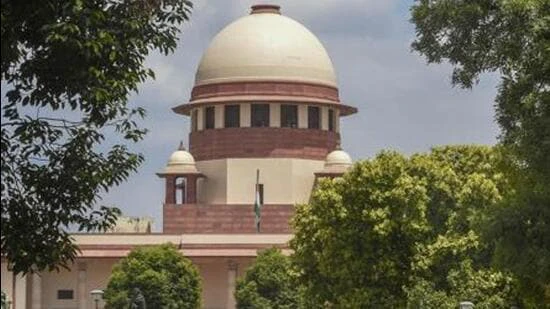The Supreme Court has sought the assistance of the National Legal Services Authority (NALSA) in a petition filed by a 62-year-old citizen who flagged delays in verification of bail sureties and sought the use of digital technology to expedite the process, saying several people languish in jails even after getting bail.
A bench of justices Vikram Nath and Sandeep Mehta, in an order passed on September 1, issued a notice to the Centre and the Delhi government as it set out to examine the scope of integrating technology in surety verification. The court posted the matter for hearing on September 15.
Petitioner Rocky Abraham, who has been working in Italy for the past 23 years, filed the petition after Delhi Police arrested him on January 17 for an alleged offence under the Wildlife Protection Act, 1972, by carrying a “deer horn”. He obtained a bail from a trial court on January 22. However, due to the delay in verification of his sureties-who arrived in Delhi from Kerala-the petitioner had to spend eight more days in jail before he came out of jail on January 29.
Issuing notice to the Centre and the Delhi government, the bench said, “Let the NALSA through Member Secretary be impleaded as respondent no. 5 and notice be also issued to newly added respondent.”
The petitioner has also sought release of his passport and permission to travel back to Italy
Urging the court for measures considering the requirement of the present generation which frequently travels around India and the world, the petition said, “In the contemporary digital world, India has some of the best hi-tech courts, but when it comes to execution of surety, its verification, life in jail, listing of cases, time frame in which the cases are listed and disposed, bail conditions, drastic reforms are the need of the hour.”
The petition added that as the case was getting delayed and the deadline for the petitioner to rejoin his service back in Italy was expiring on February 14, he approached the Delhi high court which sought a status report from the police.
Advocate Wills Mathews, representing the petitioner in the top court, said the report showed no criminal case was made out as Dehradun-based Wildlife Institute of India (WII) confirmed that the “deer horn” sent to the expert body for lab analysis does not come under Schedule 1 of the Wild Life Protection Act.
However, since the filing of the status report on March 21, the case was listed thrice before the high court which adjourned the matter citing “no time left”. It was last listed on July 17 only to be adjourned to November 19.
Mathews said, “Once there is a finding to the effect that, the deer horn recovered from the petitioner does not come under Schedule 1 of the Wild Life Protection Act, the continuation of the proceedings against the petitioner and detaining the petitioner in India, away from his workplace in Italy, seriously violates Article 21 of the constitution of India.”
The petitioner even approached the trial court for release of the passport. This application filed on April 9 was listed on nine occasions only to be adjourned at every hearing. Finally, on August 11, the trial court permitted him to return to Italy provided he furnished ₹20 lakh FDR (FULL FORM?) and restrained him from travelling anywhere other than Italy.
